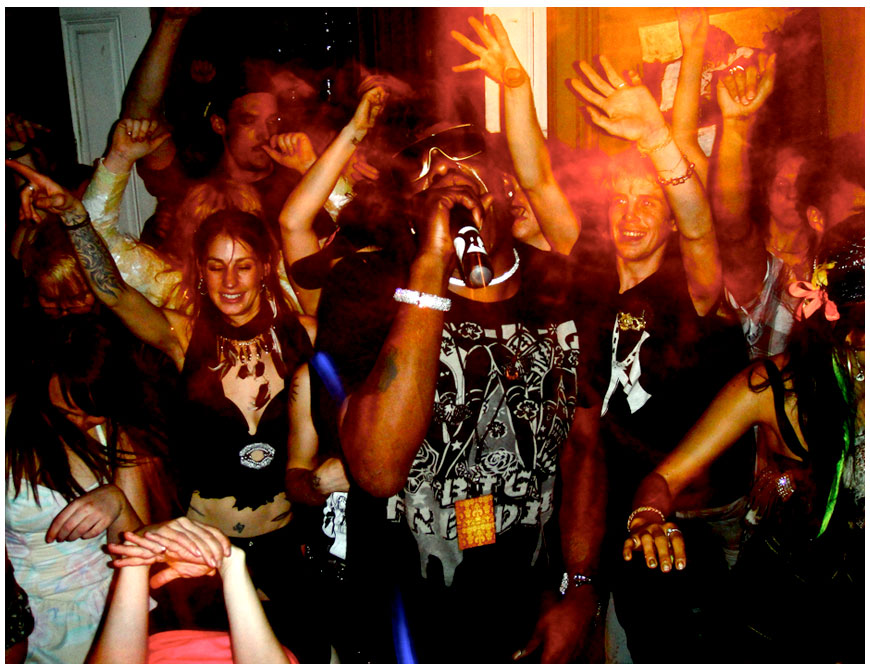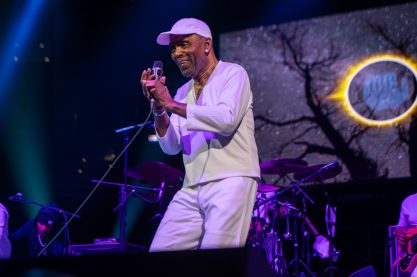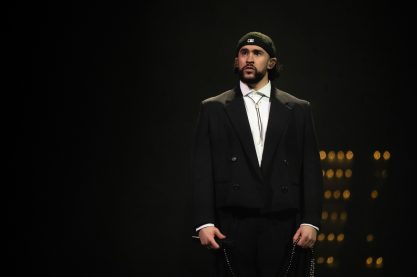Music
Music: Big Freedia
[caption id="attachment_22264" align="alignleft" width="536" caption="Image courtesy of BigFreedia.com"] [/caption]
[/caption]
It could easily have been a scene out of any staid ol’ hip hop concert: an MC, performing for several thousand concertgoers on a sweltering Sunday afternoon in August, rapped about alcohol, sex and violence. A handful of backup dancers shook their rumps, quite literally. And, at the rapper’s insistence, the audience responded by waving their hands in the air (like they just don't care).
But at the helm of the performance on this particular Sunday was not your typical MC. It was Big Freedia, the transgender New Orleanian rapper who has, over the past couple of years, come to be the face of NOLA’s rapidly growing "sissy bounce" genre, a variant of bounce music performed by LGBTQ rappers. Freedia, it should be noted, does not endorse the term "sissy bounce." But given that hip hop as a genre, and a culture, has traditionally been criticized for its homophobia, it's no wonder that people are more concerned with her sexuality and gender orientation than her rhymes.
If it seems like Freedia's everywhere these days, it's because she is. Since we first introduced you to "sissy bounce" last fall, Freedia's made several appearances in the New York Times, including a lengthy profile in the Sunday Times Magazine. And her months-long nationwide tour often included multiple performances a night.
As a surprise guest at the last of this summer’s iconic Jelly Pool Parties last month, Freedia intrigued (and, I'd venture to guess, impressed) the hipster masses at the Williamsburg Waterfront. "The crowd didn’t take much time at all to warm up to it, and by the time Big Freedia was done everyone would know the name," read a review on the Sailor Jerry blog.
[vimeo 5187989 nolink]
Indeed, Freedia, who shared the stage with the Cool Kids, DMC, Doug E. Fresh and Gucci Mane, received among the most positive reactions of the day. Her back-up dancers thrilled Williamsburg with their authentic New Orleans-style booty-popping to her club hit, “Azz Everywhere.” And Freedia herself engaged the audience to sing along to words most of them had never heard before; she prodded, "I've got that gin in my system..." to which the audience replied, "Somebody gon' be my victim!”
But even as members of the crowd quickly moved from confused to interested, one couldn't help but wonder how–and whether–Freedia fits in to the wider landscape of hip hop. It's been a long time coming, but has hip hop–and indeed the hip hop community–finally met the person who may very well be the one to successfully challenge its pervading anti-LGBTQ sentiments? Does she have a lasting place in the scenery of American hip hop, or are “sissy” artists simply a novelty act that will soon be forgotten? There’s no guessing what Freedia's legacy will be, but it’s encouraging to know it may be a lasting one.




